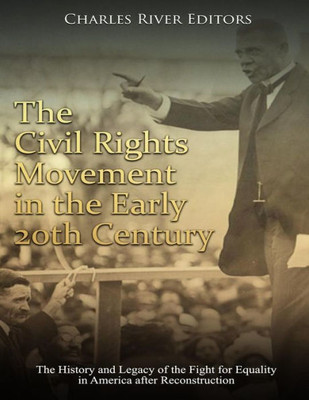*Includes pictures *Includes online resources and a bibliography for further reading Despite a Union victory and Lincoln's Emancipation Proclamation, unthinkable in the previous century, a new form of suppression and violence descended on the African-American population. "Reconstruction" is employed as a generic term for the period that followed the American Civil War. Suggesting a successful rejuvenation of a war-ravaged South, it lamentably gave way to a resurrection of the same white ruling class and slave-owner mentality, protecting the status quo in the legislatures and courts. With the distortion of Reconstruction's intent came a body of racial policy and a tacitly understood social code that barred the pre-war slave class from personal freedom and opportunity, at the risk of great personal violence for anyone who objected. The arduous task of overthrowing Jim Crow codes and legislation marked one of the first strides toward the modern struggle for ethnic equality in American society and required nearly a century of struggle. That effort spawned a multitude of heroic African-American activists, but it is remembered in large part for the work of a few iconic African-American men of stature. Much like their later counterparts, Reverend Martin Luther King, Jr. and Malcolm X, the debate between gradual integration through temporary accommodation and overtly insistent activism was led by Booker T. Washington and W. E. B. Du Bois. Through the last years of the 19th century, Washington's gentler approach of enhancing black prospects through vocational education, largely accomplished with white permission and funds, seemed the popular choice. His legacy can be sensed in King's subsequent willingness to extend an olive branch to white Americans in a sense of unity, although Washington's propensity for accommodation held no place in King's ministry. Despite being so recognized, and perhaps in part because of it, by the early 20th century, Washington's tactics were questioned by other black leaders, notably W. E. B. Du Bois, who wanted to protest more vehemently in an effort to secure civil rights. Washington, 12 years Du Bois' senior, entered the field of education and founded the famous Tuskegee Institute based on his vision of what a population emerging from generations of slavery required in order to successfully integrate into modern life. His position was simply one of incremental entry by the provision of industrial education and political accommodation. He urged blacks to accept discrimination in the short term and concentrate on elevating themselves, thereby proving themselves through hard work and material prosperity. Du Bois would have none of that, believing it amounted to an approval of the Jim Crow regime of the South and a passive acceptance of racism. In opposition, he and other black leaders organized the Niagara Movement, citing opposition to Washington's moral leadership of the movement and marking their determination to fight for full civil equality for black Americans. The movement did not gain much traction, but it was in direct line of ascension to the much more influential National Association for the Advancement of Colored People (NAACP). The third and most improbable approach toward American civil rights for black citizens blended the beliefs of Washington and Du Bois, and it was spearheaded by global activist Marcus Aurelius Garvey. The Jamaican began his career as an activist with a devotion to Washington's path, but he subsequently leaned to the alternative, and beyond. Beyond the worldview of both colleagues, Marcus Garvey's bigger-than-life scheme was to establish a black-owned and managed shipping line to transport much of America's black population back to Africa.
- | Author: Charles River Charles River Editors
- | Publisher: Createspace Independent Publishing Platform
- | Publication Date: Oct 18, 2018
- | Number of Pages: 214 pages
- | Language: English
- | Binding: Paperback
- | ISBN-10: 1729504299
- | ISBN-13: 9781729504291





